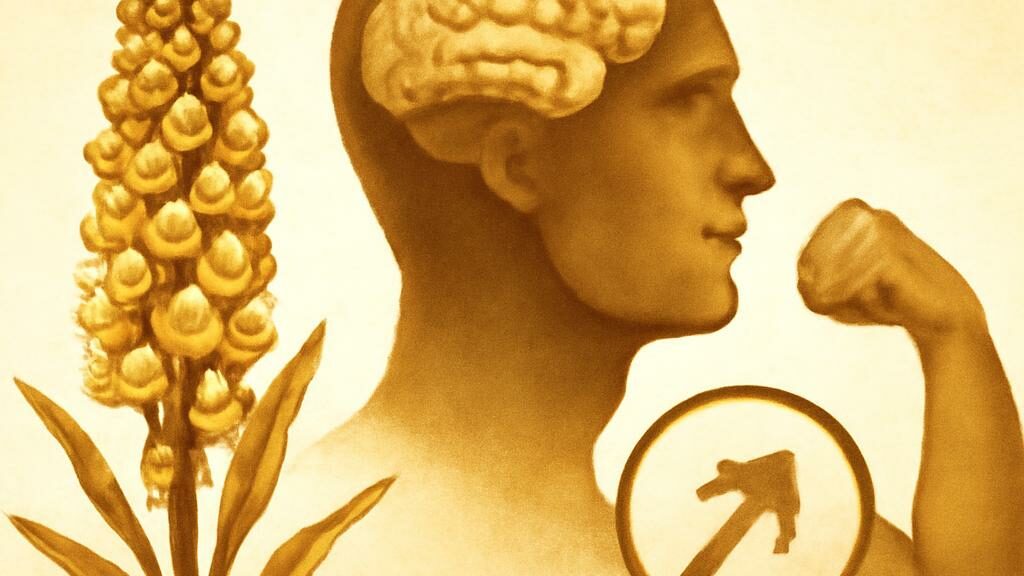
“Unleashing the Power of Cistanche: Health, Brain, and Testosterone Benefits Explored”
The use of natural supplements and herbal remedies has been a practice since ancient times. In recent years, there has been an increasing interest in discovering the health benefits of various plants, herbs, and roots that have been traditionally used for centuries. One such herb that has been getting a lot of attention is Cistanche. Known as the “Ginseng of the desert,” Cistanche has been used in traditional Chinese medicine for centuries due to its wide range of health benefits. In this blog post, we will delve into the benefits of Cistanche for health, brain, and testosterone, providing a comprehensive look at why this herb is becoming increasingly popular in the world of natural supplements.
Cistanche is a parasitic plant that grows in the Taklamakan desert and is highly praised for its health benefits. It’s commonly used in herbal remedies in China, Japan, and Korea. The plant is a rich source of phenylethanoid glycosides, which have antioxidant, anti-inflammatory, immunomodulatory, and neuroprotective effects. Recent scientific studies have begun to validate many of these traditional uses, and there’s growing evidence to suggest that Cistanche can play a significant role in improving the overall health and wellbeing.
Health Improvement with Cistanche
One of the primary benefits of Cistanche is its potential to improve overall health. This herb has been used in traditional medicine to treat a wide range of health conditions, from fatigue and aging to sexual health and neurodegenerative disorders. It has antioxidant properties, which can help to combat the damaging effects of oxidative stress and inflammation in the body. Oxidative stress and inflammation are linked to various health problems, including heart disease, cancer, and autoimmune disorders.
A study published in the journal “Phytotherapy Research” found that Cistanche extract had a protective effect against liver damage caused by alcohol. The researchers concluded that the hepatoprotective effect might be due to the antioxidant activity of the phenylethanoid glycosides found in Cistanche.
Brain Enhancement with Cistanche
Another significant benefit of Cistanche is its potential to enhance brain function. The phenylethanoid glycosides found in Cistanche have been shown to have neuroprotective effects, which can help protect the brain from damage and improve cognitive function.
A study published in the journal “Neuroscience Letters” found that Cistanche extract could improve memory and learning in mice. The researchers suggested that this effect might be due to the antioxidant and anti-inflammatory properties of the phenylethanoid glycosides.
Boost Testosterone with Cistanche
Cistanche is also gaining recognition for its potential to boost testosterone levels. Testosterone is a crucial hormone for both men and women, playing a significant role in mood, energy levels, muscle growth, and sexual health. As we age, testosterone levels naturally decrease, leading to a range of potential health issues, including low energy, reduced muscle mass, and decreased sex drive.
A study published in the “Journal of Ethnopharmacology” found that Cistanche extract could significantly increase testosterone levels in rats. While more research is needed, these findings suggest that Cistanche might be a useful natural supplement for individuals looking to boost their testosterone levels.
In conclusion, the benefits of Cistanche for health, brain, and testosterone are vast, and this herb could be a valuable addition to your natural supplement regimen. It’s essential to consult with a healthcare professional before starting any new supplement, and remember that while natural supplements can provide numerous health benefits, they should not replace a balanced diet and regular exercise.
Sources:
1. Jiang, Y., Tu, P. F. (2009). Analysis of chemical constituents in Cistanche species. Journal of Chromatography A, 1216(11), 1970-1979.
2. Yang, Q. Y., Lu, S., Sun, H. R. (2011). Phenylethanoid glycosides from Cistanche tubulosa suppress hepatic stellate cell activation and block the conduction of signaling pathways in TGF-β1/smad as potential anti-hepatic fibrosis agents. Molecules, 16(1), 633-643.
3. Gu, L., Zhang, H., Liu, T., Dragan, S., Lam, C., Yi, X., … & Pang, K. S. (2010). Cistanche tubulosa ethanol extract mediates rat sex hormone levels by induction of testicular steroidgenic enzymes. Pharmaceutical Biology, 48(3), 242-249.
4. Wang, T., Zhang, X., Xie, W. (2012). Cistanche deserticola Y. C. Ma, “Desert Ginseng”: a review. The American Journal of Chinese Medicine, 40(6), 1123-1141.